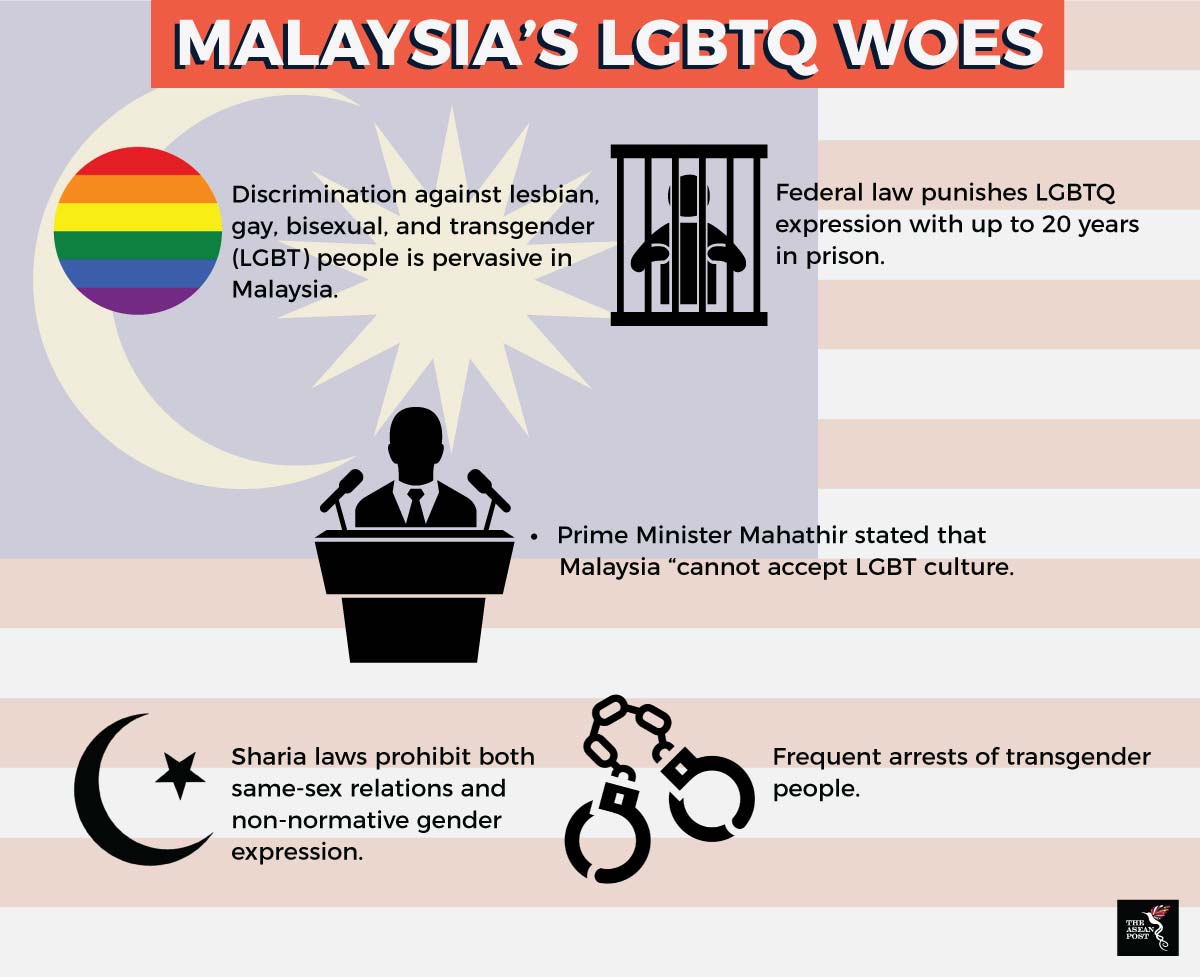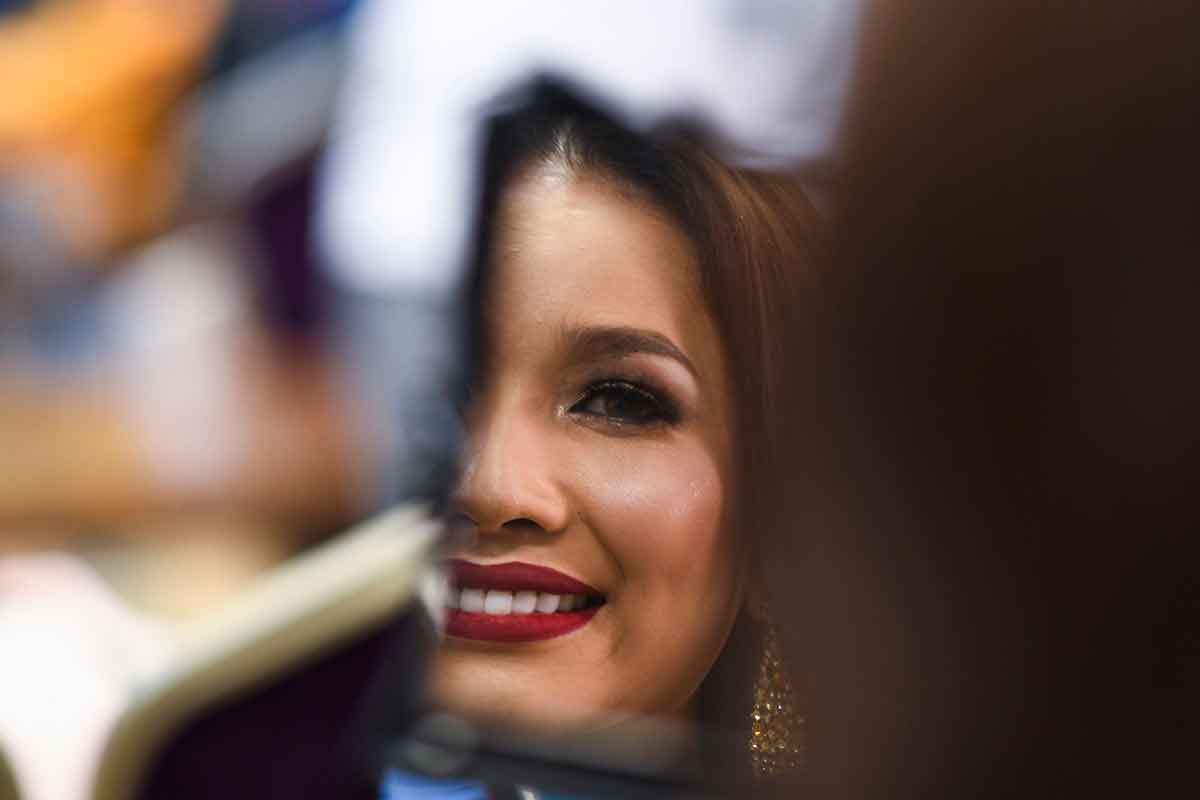Discrimination against the LGBTQ community is nothing new. In fact, it is so widely accepted that even stoning them to death is lauded in nations like Brunei and Indonesia.
Malaysia hasn’t yet gone that far but it is clear that the levels of tolerance towards the LGBTQ community in the country will not hold unless there are major overhauls to its institutions.
Recently, LGBTQ rights activist and director of Universal Muslim Community (KMU), Numan Afifi, spoke at the United Nations Human Rights Council (UNHRC) in Geneva in response to Malaysia’s Universal Periodical Review (UPR) affirming that LGBTQ individuals “deserve equal rights as citizens”.
Numan Afifi however, said that Malaysia’s actions do not reflect this, adding that the nation carries out “state-sponsored violence” against the LGBTQ community there citing the Mukhayyam programme by the Islamic Development Department of Malaysia (Jakim) and recent Women’s March as examples.

However, is what Numan Afifi saying true? Do these actions indicate Malaysia’s prejudice against the LGBTQ community?
Mukhayyam programme
The Mukhayyam programme was described by Numan Afifi as a form of conversion therapy which in the West is considered a form of psychological abuse.
Mukhayyam is a programme that began in 2011 and spans three days and two nights and aims to instil a form of “spiritual fulfilment” in its participants. Malaysian Alliance of Civil Society Organisations in the UPR Process (MACSA) has said that the Mukhayyam also “addresses health issues in the LGBTQ community.”
“Participation in the Mukhayyam programme is also completely voluntary with no elements of coercion involved and is far indeed from conversion therapy practised by other countries which involve an element of forced participation,” explained MACSA.
Conversion therapy might be seen as a form of abuse by the West, but the alternative is much grimmer as Brunei has recently shown.
Women’s Day March
Another instance Numan Afifi brought up was the Women’s Day March in March 2019. “Sensationalised reports had disproportionately focused on the participation of the LGBT people in the march” said Numan when he recounted the incident.
“[Women’s Day March] saw the creation of an environment of impunity for harassment, intimidation and hate against the LGBT community.” The march was abruptly ended by the Malaysian police allegedly due to police reports that pointed to the involvement of the LGBTQ community in the march.
Malaysia’s Home Minister, Muhyiddin Yassin denies this by saying that the “police have conducted investigations and found there was no permit issued for the assembly” citing the Peaceful Assembly Act of 2012.
The Women’s Day March incident is not the first-time anti-LGBTQ rhetoric has reared its ugly head in Malaysia and the authorities there have admitted that “discrimination at one point was there but it was not harsh” said Mohd Al Khusyairi Mohd Arif, director of Hijrah Republique Network in an interview with TV Pertiwi.
By restricting the free speech of the LGBTQ community, Malaysia opens itself up to scrutiny by human rights defenders and the Women’s Day March incident has shown that the country is comfortable with this stance.
“State-sponsored violence”
Numan Afifi had also called for the termination of “state-sponsored violence” against all LGBTQ individuals by saying that all are free and equal. Numan may have overstepped the line by making such a claim against the local authorities.
MACSA asked him to retract his statement as while discrimination towards the LGBTQ community is present, the state never explicitly promoted violence against the community in any shape or form.
While Malaysia has always been discriminatory against the LGBTQ community, there has never been widespread violence against them with the authorities there preferring instead to “re-educate” the LGBTQ in voluntary classes.
LGBTQ protection?
However, it seems like more should be done to help protect these individuals from discriminatory violence as incidents of violence against the LGBTQ would only invite international scrutiny.
An assault in August of 2018 where a transgender woman was beaten up by eight men as well as the caning of a lesbian couple in Terengganu raises concerns over the protection for individuals in the LGBTQ community according to the World Report 2019 by the Human Rights Watch (HRW).
All of this does not seem to faze the Malaysian government as it still refuses to acknowledge its LGBTQ community. Most prominent of all is Malaysian Prime Minister Mahathir Mohamad who said that “at this moment, we do not accept the LGBTQ.”
Numan Afifi has brought up some good points regarding LGBTQ discrimination in Malaysia but first, he has to understand that Malaysia is a Muslim-majority country and as such is adamantly against LGBTQ rights unless reforms take place. Thankfully, Malaysia is slowly moving in the right direction with the introduction of an anti-bullying campaign in schools. Hopefully, more will be done in the future.
Related articles:
The struggle for human rights in ASEAN
